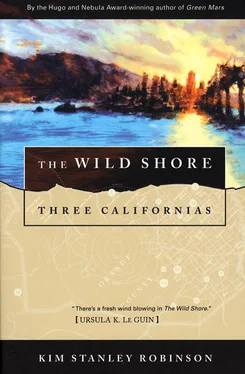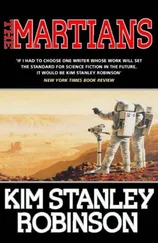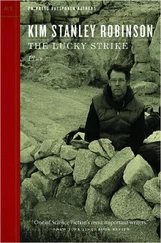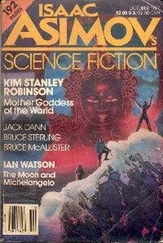Kim Robinson - The Wild Shore
Здесь есть возможность читать онлайн «Kim Robinson - The Wild Shore» весь текст электронной книги совершенно бесплатно (целиком полную версию без сокращений). В некоторых случаях можно слушать аудио, скачать через торрент в формате fb2 и присутствует краткое содержание. Год выпуска: 2013, ISBN: 2013, Издательство: Orb, Жанр: Социально-психологическая фантастика, на английском языке. Описание произведения, (предисловие) а так же отзывы посетителей доступны на портале библиотеки ЛибКат.
- Название:The Wild Shore
- Автор:
- Издательство:Orb
- Жанр:
- Год:2013
- ISBN:978-0-312-89036-0
- Рейтинг книги:4 / 5. Голосов: 1
-
Избранное:Добавить в избранное
- Отзывы:
-
Ваша оценка:
- 80
- 1
- 2
- 3
- 4
- 5
The Wild Shore: краткое содержание, описание и аннотация
Предлагаем к чтению аннотацию, описание, краткое содержание или предисловие (зависит от того, что написал сам автор книги «The Wild Shore»). Если вы не нашли необходимую информацию о книге — напишите в комментариях, мы постараемся отыскать её.
The Wild Shore — читать онлайн бесплатно полную книгу (весь текст) целиком
Ниже представлен текст книги, разбитый по страницам. Система сохранения места последней прочитанной страницы, позволяет с удобством читать онлайн бесплатно книгу «The Wild Shore», без необходимости каждый раз заново искать на чём Вы остановились. Поставьте закладку, и сможете в любой момент перейти на страницу, на которой закончили чтение.
Интервал:
Закладка:
“What do you think happened to him?”
“Well…” We turned onto the path to his house. “Someone shot him!” He cackled at my expression. “I guess he was trying to visit the United States of America. But the United States of America is out of bounds. ” He navigated his yard without paying the least bit of attention to it, and I followed him closely. We went into the house. “Obviously someone has declared us out of bounds, we are beyond the pale, boy, only in this case the pale is rather dark, those ships steaming back and forth out there are so black you can see them even on a moonless night, rather stupid of them if they wanted them truly invisible. I haven’t seen a foreigner—a live foreigner, that is—those dead ones make mighty poor informants, hee hee—since the day. That’s too long for coincidence, not that there aren’t contributing indications. But that’s the main fact; where are they?—since they are out there.” He filled the teapot. “It’s my hypothesis that declaring us off limits was the only way to avoid fighting over us, and destroying… but I’ve outlined this particular guess to you before, eh?”
I nodded.
“And yet I don’t even know who we’re talking about, when you get right down to it.”
“The Chinese, right?”
“Or the Japanese.”
“So you think they really are out there on Catalina just to keep folks away?”
“Well I know someone’s on Catalina, someone not like us. That’s one thing I know. I’ve seen the lights from up here at night, blinking all over the island. You’ve seen them.”
“I sure have,” I said. “It’s beautiful.”
“Yeah, that Avalon must be a bustling little port these days. No doubt something bigger on the backside, some Alexandrian causeway harbor, you know. It’s a blessing to know something for sure, Henry. Surprisingly few things you can say that about. Knowledge is like quicksilver.” He walked over to the fireplace. “But someone is on Catalina.”
“We should go over and see who.”
He shook his head, looking out his big window at the fast onshore streamers. “We wouldn’t come back.”
Subdued, he threw some twigs on the coals of the banked fire, and we sat before the window in two of his armchairs, waiting for the water to heat. The sea was a patchcloth, dark grays and light grays, with silver buttons scattered in a crooked line between us and the sun. It looked like it was going to rain rather than fog up; old Nicolin would be mighty annoyed, because you can fish in the rain. Tom pulled at his face, making a new pattern in the ten thousand wrinkles lining it. “Whatever happened to summertime,” he sang, “yes when the living was eee-sy.” I threw some more twigs on the fire, not bothering to respond to the little tune I had heard so often. Tom had told a lot of stories about the old time, and he was insistent that in those days our coastline had been a treeless, waterless desert. But looking out the window at the forest and the billowing clouds, feeling the fire warm the chill air of the room, remembering our adventure of the night before, I wondered if I could believe him. Half of his stories I could not confirm in his many books—and besides, couldn’t he have taught me to read wrong, so that what I read would back up what he said?
It would be pretty difficult to make up a consistent system, I decided as he threw one of his packets of tea—made of plants he picked in the back country—into the pot. And I remembered once at a swap meet, when he came running up to Steve and Kathryn and me, drunk and excited, blabbing, “Look what I bought, look what I got!”—pulling us under a torch to show us a tatty old half an encyclopedia, opened to a picture of a black sky over white ground, on which stood two completely white figures and an American flag. “That’s the moon, see? I told you we went there, and you wouldn’t believe me.” “I still don’t believe you,” Steve said, and nearly busted laughing at the fit the old man threw. “I bought this picture for four jars of honey to prove it to you skeptics, and you still won’t believe me?” “No!” Kathryn and I were in hysterics at the two of them—we were pretty drunk too. But he kept the picture (though he threw away the encyclopedia), and later I saw the blue ball of the Earth in the black sky, as small as the moon is in our sky. I must have stared at that picture for an hour. So one of the least likely of his claims was apparently true; and I was inclined to believe the rest of them, usually.
“All right,” Tom said, handing me my cup full of the pungent tea. “Let’s hear it.”
I cleared my mind to imagine the page of the book Tom had assigned me to learn. The regular lines of the poetry made them easy to memorize, and I spoke them out as my mind’s eye read them:
“ ‘Is this the region, this the soil, the clime,’
Said then the lost Archangel, ‘this the seat
That we must change for Heaven?
—this mournful gloom
For that celestial light?’ ”
I went on easily, having a good time playing the part of defiant Satan. Some of the lines were especially good for thundering out:
“ ‘Farewell, happy fields,
Where joy forever dwells! Hail, horrors! Hail,
Infernal world! and thou, profoundest Hell,
Receive thy new possessor—one who brings
A mind not to be changed by place or time.
The mind is its own place, and in itself
Can make a Heaven of Hell, a Hell of Heaven.
What matter where, if I be still the same,
And what I should be, all but less than he
Whom thunder hath made greater? Here at least
We shall be free—’ ”
“All right, that’s enough of that one,” Tom said, looking satisfied as he stared out to sea. “Best lines he ever wrote, and half of them stolen from Virgil. What about the other piece?”
“I do that one even better,” I said confidently. “Here you go:
“Methinks I am a prophet new inspired,
And thus expiring do foretell of him:
His rash fierce blaze of riot cannot last,
For violent fires soon burn out themselves.
Small showers last long, but sudden storms are short;
He tires betimes that spurs too fast betimes;
With eager feeding, food doth choke the feeder—”
“That was us all right,” Tom interrupted. “He’s writing about America, there. We tried to eat the world and choked on it. I’m sorry, go on.”
I struggled to remember my place, and started again:
“This royal throne of kings, this sceptered isle,
This earth of majesty, this seat of Mars,
This other Eden, demi-paradise,
This fortress built by Nature for herself
Against infection and the hand of war,
This happy breed of men, this little world,
This precious stone set in a silver sea
Which serves it in the office of a wall,
Or as a moat defensive to a house,
Against the envy of less happier lands,
This blessed plot, this earth, this realm, this England—”
“Enough!” Tom cried, chuckling and shaking his head. “Or too much. I don’t know what I think. But I sure give you good stuff to memorize.”
“Yeah,” I said. “You can see why Shakespeare thought England was the best state.”
“Yes, he was a great American. Maybe the greatest.”
“But what does moat mean?”
“Moat? Why, it means a channel of water surrounding a place to make it hard to get to. Couldn’t you figure it out by context?”
“If I could’ve, would I have asked you?”
He cackled. “Why, I heard that one out at one of the little back country swap meets, just last year. Some farmer. ‘We’re going to put a moat around the granary,’ he said. Made me a bit surprised. But you hear odd words like that all the time. I heard someone at the swap meet say they were going to cozen up to someone, and someone else told me my sales pitch was a filibuster. Insatiate, simular—it’s amazing, the infusion of words into the spoken language. Bad news for the stomach is good news for the tongue, know what I mean?”
Читать дальшеИнтервал:
Закладка:
Похожие книги на «The Wild Shore»
Представляем Вашему вниманию похожие книги на «The Wild Shore» списком для выбора. Мы отобрали схожую по названию и смыслу литературу в надежде предоставить читателям больше вариантов отыскать новые, интересные, ещё непрочитанные произведения.
Обсуждение, отзывы о книге «The Wild Shore» и просто собственные мнения читателей. Оставьте ваши комментарии, напишите, что Вы думаете о произведении, его смысле или главных героях. Укажите что конкретно понравилось, а что нет, и почему Вы так считаете.












